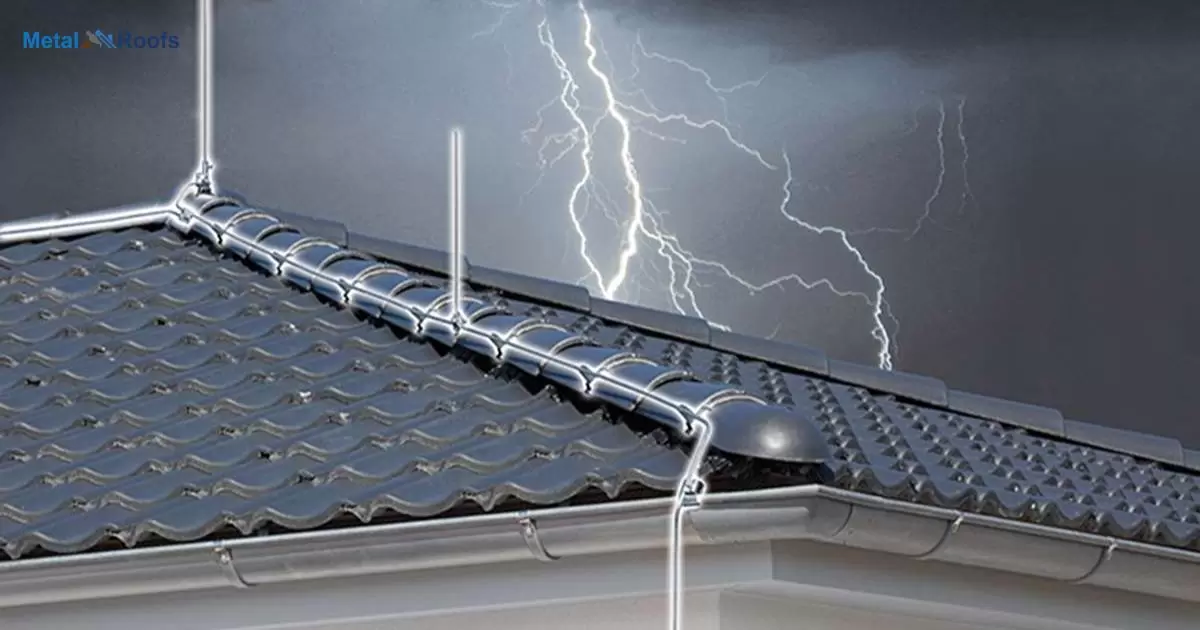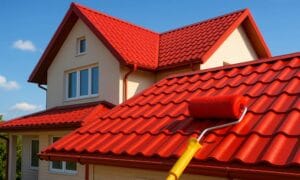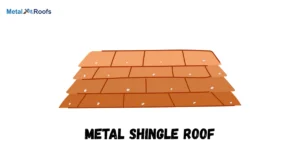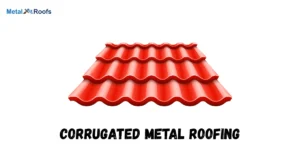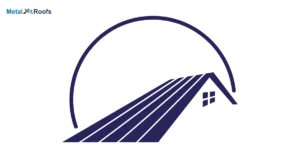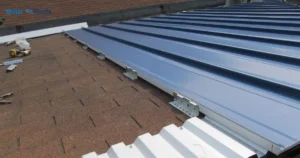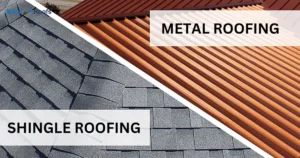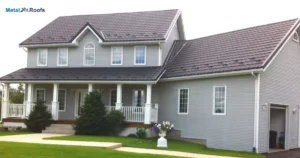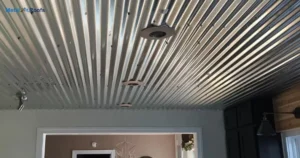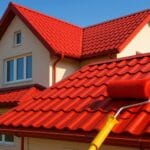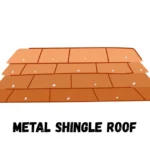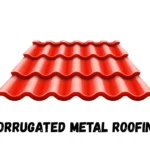Metal roofs conduct lightning safely. They do not attract more strikes. Proper grounding is important. Metal roofs protect against fire. Wood and asphalt roofs can ignite. Metal roofs are a safer choice. They offer peace of mind. Lightning is an ever-present risk.
Lightning strikes metal roofs yearly. Many homeowners worry. Are metal roofs safe in lightning? This paragraph explains. Metal conducts electricity well. But proper grounding protects homes. Myths about metal roofs spread fear. Learn the truth here.
Metal roof panels are often wrongly believed to attract lightning strikes, causing concern among homeowners. This is a myth. Properly grounded, metal roof panels can actually protect your home from lightning strikes, dispersing electricity safely.
Key Takeaways
- Metal roofs are safe during lightning storms.
- They don’t attract lightning more than other materials.
- They’re noncombustible, reducing fire risk.
- Proper grounding and lightning protection systems enhance safety.
- Overall, properly installed metal roofs are safe in lightning-prone areas.
Lightning Protection System
When it comes to safeguarding your property from lightning strikes, a lightning protection system is key. This system includes lightning rods and conductors, guiding electrical charges safely into the ground. It’s crucial to ensure your metal roof is properly grounded to maximize safety during storms.
These systems work by providing a path of least resistance for lightning strikes, reducing the risk of damage. With a well-installed lightning protection system, you can have peace of mind knowing your home or building is better protected against the unpredictable forces of nature.
What Attracts Lightning?
| Factors | Attractiveness to Lightning |
| Height (Tall objects) | High |
| Material (Metal) | Moderate |
| Location (Open areas) | High |
| Shape (Pointed objects) | High |
| Moisture (Wet surfaces) | High |
Lightning is attracted to tall objects like trees, buildings, and even people. These objects provide a path for lightning to travel from the sky to the ground. Lightning doesn’t specifically target metal objects more than others.
Factors like topography, weather patterns, and the presence of charged particles in the atmosphere can influence where lightning strikes. In essence, it’s more about being in the wrong place at the wrong time than any specific object attracting lightning.
Does Aluminum Attract Lightning?
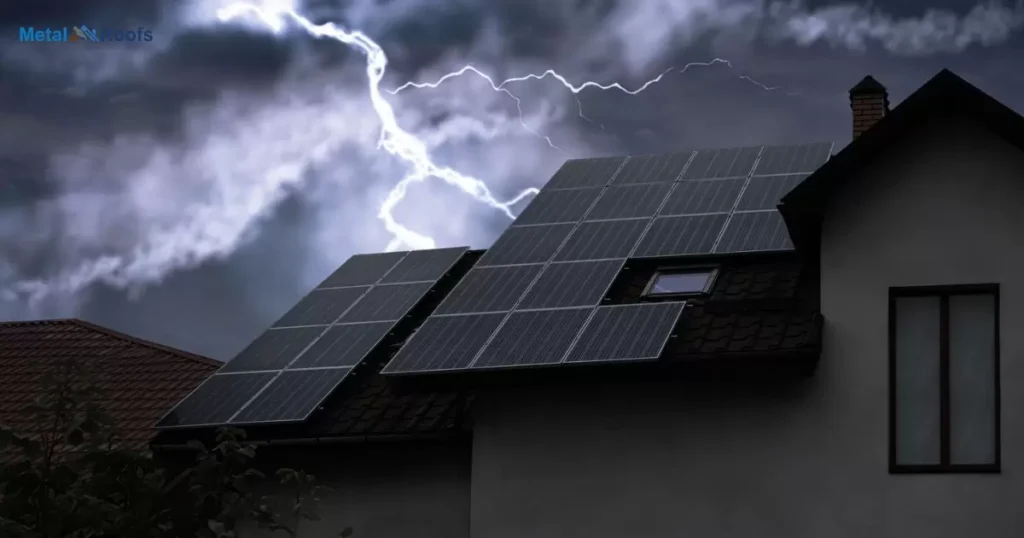
Metal roofs are safe in lightning storms. They don’t attract lightning more than other materials. Aluminum, like other metals, conducts electricity. But that doesn’t mean it draws lightning strikes.
Aluminum roofs, properly installed, pose no extra risk during thunderstorms. Lightning strikes indiscriminately. It’s aluminum, steel, or another material, the risk remains the same. So, while aluminum roofs may conduct electricity, they’re not magnets for lightning.
What Elements Attract Lightning?
Lightning is attracted to tall objects like trees, buildings, and towers. These protrude above the landscape and draw lightning’s attention. Water bodies, especially ones with minerals, also attract lightning due to their conductivity.
When thunderclouds build up, the oppositely charged particles within the clouds and on the ground create an electric field. This field seeks to balance itself, and tall, conductive objects facilitate this by providing a path for lightning to discharge.
Mountains, with their elevated peaks, are another natural target for lightning strikes. Metal objects, such as fences and poles, can attract lightning due to their conductivity, especially if they’re taller than their surroundings.
Metal Roof Design And Construction
Metal roofs are built with durable materials. They include steel, aluminum, or copper. These materials make them resistant to weather damage. Metal roofs are lightweight, reducing stress on the building’s structure.
The design of metal roofs involves interlocking panels. This design ensures tight seals against weather. Proper installation is crucial for durability. Overall, metal roofs offer both strength and style for any structure.
Are Metal Roofs Noisy When It Rains?
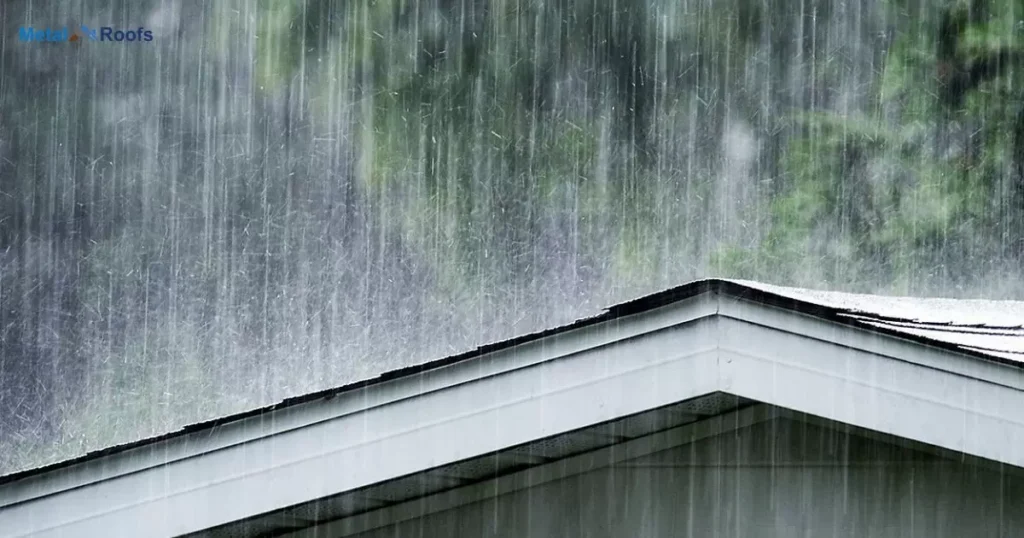
Metal roofs are not noisy when it rains. Despite common belief, the noise level is comparable to other roofing materials. The solid structure of metal roofs dampens the sound of rainfall, resulting in a minimal noise level indoors. This makes them suitable for residential and commercial buildings alike.
The misconception about metal roofs being noisy likely stems from older constructions or improperly installed roofs. With modern installation techniques and insulation, noise is rarely an issue. In fact, many people find the sound of rain on a metal roof soothing, adding to the overall appeal of these durable and low-maintenance roofing options.
Metal Roofs Rust Over Time
Metal roofs may rust over time due to exposure to moisture and oxygen. This rusting process typically starts on the surface and gradually progresses deeper into the metal. Regular maintenance, such as cleaning debris and applying protective coatings, can help slow down rust formation.
Inspecting the roof for any signs of rust and addressing them promptly can prolong its lifespan. Choosing high-quality, corrosion-resistant metal materials for roofing can mitigate rusting issues. By staying proactive with maintenance and selecting durable materials, homeowners can effectively manage and minimize rusting on their metal roofs, ensuring longevity and performance.
Metal Roofs Suitable For Extreme Weather
Metal roofs excel in extreme weather. They’re durable and resistant to harsh conditions. Whether it’s heavy rain, strong winds, or snow, metal roofs hold up well. Their sturdy construction prevents damage and leaks, ensuring long-term protection.
With proper installation, they’re even suitable for areas prone to hurricanes and tornadoes. Metal roofs offer peace of mind during storms, keeping homes safe and secure.
Metal Roofs Have Any Environmental Impact
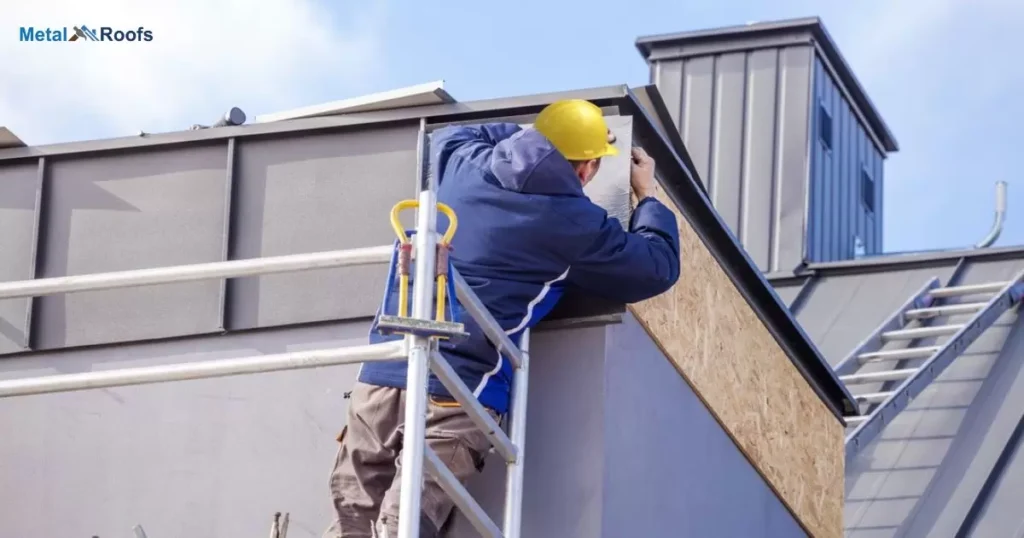
Metal roofs are renowned for being environmentally friendly. Their production often involves recycled materials, lessening the demand for new resources. Their durability, lasting 50 years or more, reduces the need for frequent replacements, thereby minimizing waste generation and making metal roofs environmentally sound choice.
Their reflective surfaces also lower energy consumption by keeping buildings cooler, reducing the need for air conditioning. Metal roofs are recyclable at the end of their lifespan, further minimizing environmental impact.
Frequently Asked Questions
What Happens When Lightning Hits A Metal Roof House?
When lightning hits a metal roof house, it follows the path of least resistance, channeled harmlessly to the ground.
What Are The Disadvantages Of A Metal Roof?
Metal roofs, while durable and long-lasting, can be noisy during storms and may require additional insulation in sunny climates.
What Is The Best Roof For Lightning?
Metal roofs, properly grounded, are a safe choice for lightning-prone areas.
Conclusion
Metal roofs offer safety and reliability during lightning storms. With proper grounding and lightning protection systems, they mitigate risks effectively. Their noncombustible nature further enhances safety, making them a preferred choice. Homeowners in lightning-prone areas can trust metal roofs for peace of mind.
Metal roofs stand out as a dependable option for lightning safety. Their ability to handle electrical charges without attracting strikes makes them a sensible investment. By choosing a metal roof and ensuring it’s properly installed and grounded, homeowners can significantly reduce the risk of lightning-related damage to their properties.
